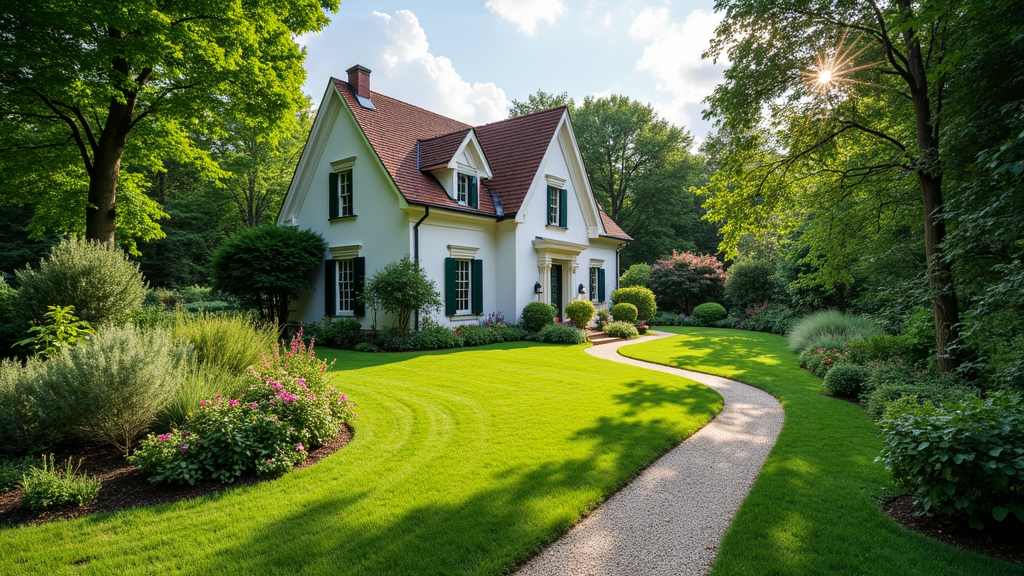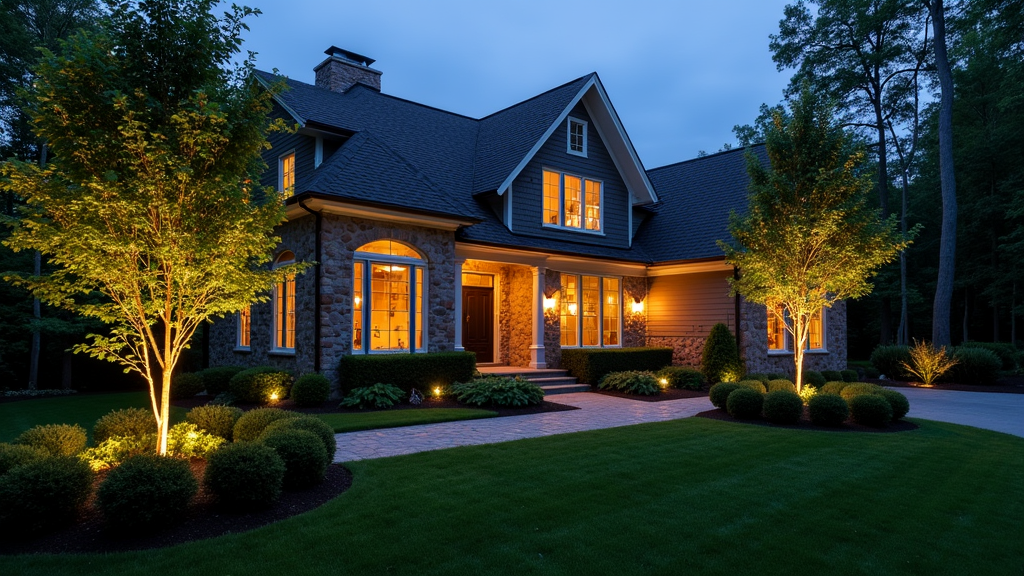Introduction
If you're a lawn care enthusiast, you've probably heard of mulch. But what exactly is it, and how can it revolutionize your lawn care routine? In this comprehensive guide, we delve deep into http://augustdrvu676.raidersfanteamshop.com/essential-nutrients-every-healthy-lawn-needs the world of mulch—exploring its benefits, the different types available, and practical tips for incorporating it into your gardening regimen. Whether you're a seasoned gardener or a novice looking to spruce up your yard, understanding mulch can significantly enhance your lawn's health and aesthetic appeal.

Using Mulch in Your Lawn Care Routine: Benefits and Tips
Mulch is not just an aesthetic addition to your garden; it's an essential element in maintaining a healthy lawn. This layer of material applied to the surface of soil offers numerous benefits that every homeowner should be aware of. Let's dive right in!
What is Mulch?
Mulch refers to any material spread over the soil surface to conserve moisture, improve fertility, reduce weed growth, and enhance the overall look of your lawn or garden beds. It can be organic, such as wood chips or straw, or inorganic like stones or landscape fabric.
The Benefits of Using Mulch
1. Moisture Retention
One of the primary benefits of using mulch in your lawn care routine is that it helps retain soil moisture. By covering the soil with mulch, you reduce evaporation rates during hot weather. This means less frequent watering for your plants.
2. Weed Suppression
Mulch acts as a barrier that restricts sunlight from reaching weed seeds. Consequently, fewer weeds will sprout in your lawn or garden beds, which translates to less time spent weeding.
3. Soil Temperature Regulation
Mulch helps maintain consistent soil temperatures by insulating the ground underneath. This is particularly beneficial for plant roots during extreme weather conditions.
4. Nutrient Addition
Organic mulches break down over time, enriching the soil with nutrients as they decompose. This organic matter improves soil structure and boosts microbial activity.

Types of Mulch for Lawn Care
1. Organic Mulch
- Wood Chips: Long-lasting and effective at suppressing weeds. Straw: Ideal for vegetable gardens; breaks down quickly. Grass Clippings: Readily available but should be used sparingly to avoid matting.
2. Inorganic Mulch
- Pebbles or Gravel: Excellent for drainage but does not improve soil fertility. Landscape Fabric: Helps control weeds while allowing water penetration.
Choosing the Right Mulch for Your Lawn Care Needs
When selecting mulch for your lawn care routine, consider factors such as aesthetics, availability, cost, and how well it fits into your garden's ecosystem.
How to Apply Mulch Effectively
Preparation: Clear the area of weeds and debris. Layering: Apply mulch in layers about 2-4 inches thick. Watering: Soak the area after applying mulch to help it settle.Tips for Maintaining Your Mulched Areas
Regular Monitoring
Check regularly for any signs of mold or pest infestations beneath your mulch layer.
Refreshing Your Mulch Layers
Over time, organic mulch will break down; refresh it every few months to maintain its efficacy.
Avoiding Over-Mulching
Too much mulch can suffocate plants; ensure appropriate depth based on plant needs.
Frequently Asked Questions (FAQs)
1. How often should I apply mulch?
It's generally recommended to refresh organic mulch annually, while inorganic options may last several years without significant maintenance.
2. Can I use grass clippings as mulch?
Yes! Grass clippings are a great option as they decompose quickly but should be applied thinly to prevent matting.
3. What’s the best type of mulch for flower beds?
Organic mulches like shredded bark or wood chips work well because they add nutrients back into the soil as they decompose.
4. Will mulch attract pests?
While some types may attract insects like termites if improperly used (like wood mulches near foundations), most mulches deter pests when applied correctly.
5. How deep should I lay my mulch?
Aim for a depth between 2-4 inches depending on the type of plant life underneath; too much can lead to root suffocation.
6. Can I use old leaves as mulch?
Absolutely! Old leaves make excellent organic mulch; just chop them up first to help them break down more quickly!
Conclusion
Using Mulch in Your Lawn Care Routine: Benefits and Tips is not just about aesthetics—it's about creating a thriving ecosystem right outside your door! The advantages are plentiful—moisture retention, weed suppression, temperature regulation—you name it! By choosing the right type of mulch and applying it effectively, you'll find yourself spending less time on maintenance while achieving that lush green yard you've always wanted!
So there you have it—a detailed exploration into all things mulch! Now go ahead and start implementing these tips into your lawn care regimen today!
This article provides an exhaustive look into using mulch effectively within your lawn care routine while adhering strictly to SEO standards through formatting techniques like headings and lists—all while keeping things friendly and engaging!